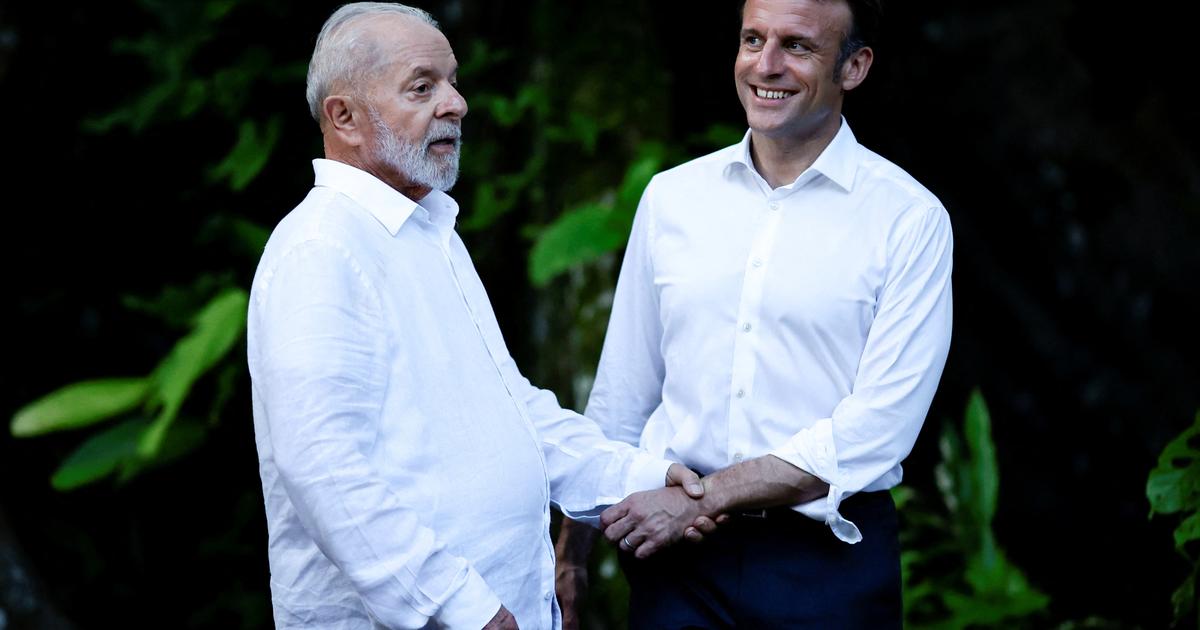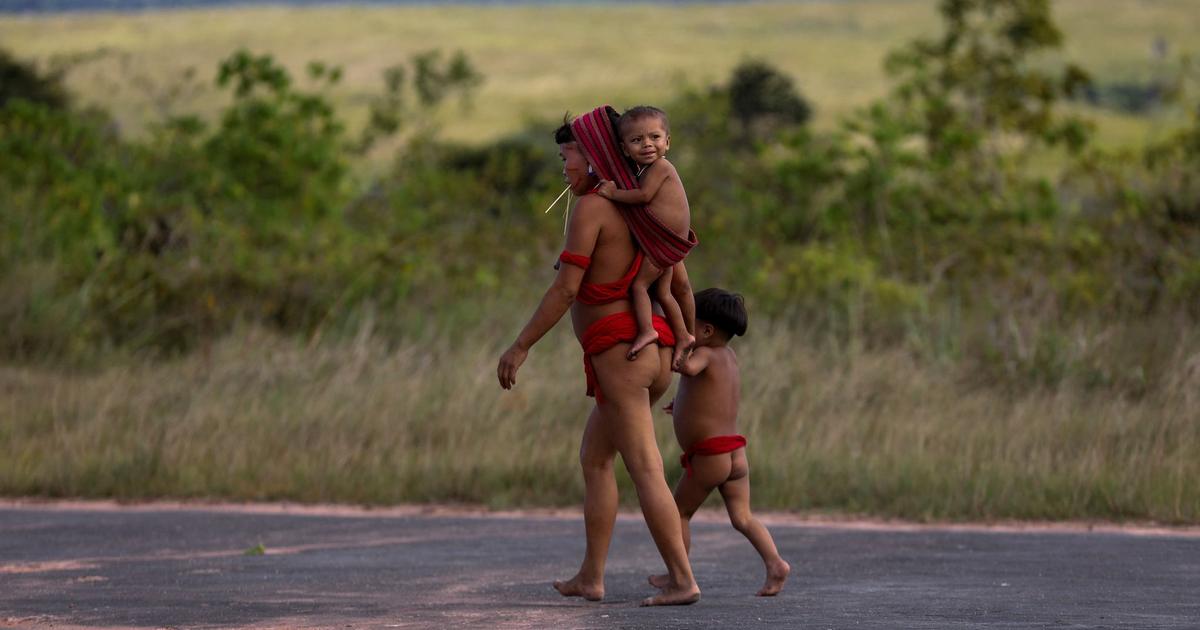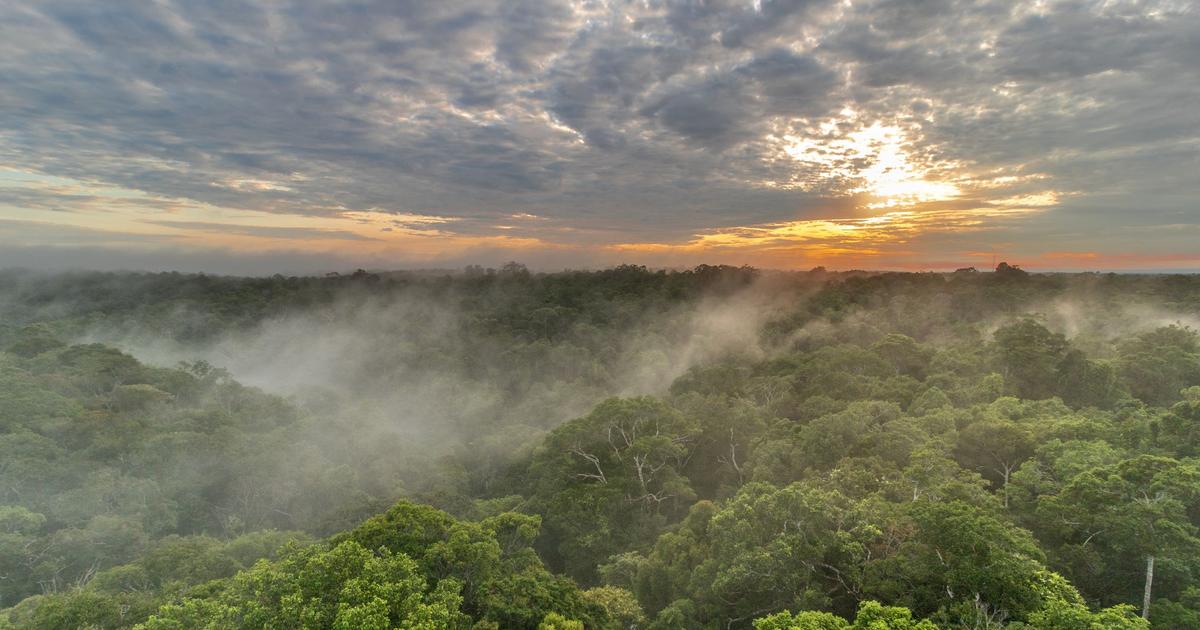Enlarge image
"Bolsonaro out," reads the headband of a demonstrator in the Brazilian capital, Brasilia
Photo: Andressa Anholete / Getty Images
They play a key role in the world's climate.
In South America, indigenous groups are considered to be the “guardians of the rainforest” in the fight against environmental damage and global warming.
Where indigenous people have land titles, far fewer trees fall victim to overexploitation, according to scientific studies.
Before a meeting of the World Conservation Union (IUCN), the organization Coica, which represents two million indigenous people in South America, calls for 80 percent of the Amazon region to be protected by 2025. They also want to manage the new protected areas themselves. "Our forests and our peoples are threatened from all sides," said José Gregorio Diaz Mirabal, coordinator of the umbrella organization for indigenous groups in the Amazon basin.
The IUCN comprises around 90 states and more than 1200 governmental and non-governmental environmental organizations. The next week's congress in Marseille will also deal with the 6.7 million square kilometer Amazon basin, which extends over nine states. The rainforest absorbs around a quarter of all CO2 emissions that are absorbed by the earth's surface. The vegetation of the Amazon forest and its cloud cover protect the planet from overheating.
"Our proposal comes at a time when we are desperately looking for solutions to stop the destruction of nature," said Coica delegation leader Díaz Mirabal.
The indigenous communities are often victims of land grabbing and displacement.
In Brazil, they suffer particularly from the right-wing extremist President Jair Bolsonaro, who has often given free rein to his racism and has accelerated the deforestation of the rainforest.
Around 6,000 members of indigenous groups protested all week in the Brazilian capital, Brasília, against the threat of revocation of the protection status for parts of their ancestral areas.
The Supreme Court of Brazil was supposed to make a landmark decision on Wednesday for the indigenous groups and thus the protection of the rainforest, but postponed it to September 1st.
This involves a regulation called "Marco Temporal", which large landowners and agricultural entrepreneurs interpret in such a way that indigenous peoples can only claim land where they already lived before the 1988 constitution came into force.
According to environmentalists, the rights of the indigenous peoples are thereby inadmissibly curtailed.
The indigenous umbrella organization Apib then declared that the struggle for the rights of the indigenous peoples was going on - in the expectation that their constitutional rights would finally be confirmed by a court order.
It is about nothing less than "the verdict of the century", said the legal advisor to the non-governmental organization "Amazon Watch", Ana Alfinito.
Half a dozen legislative projects in the National Congress threaten to undermine environmental protection and the rules for the protection of indigenous peoples and their territories.
All of these legislative projects have been pushed forward since the Bolsonaro government took office in January 2019.
During the 2018 election campaign, the president announced that he would no longer designate protected areas, no matter how small.
His government could be the first since the return to democracy in the 1980s not to establish a new indigenous sanctuary.
fww / dpa



/cloudfront-eu-central-1.images.arcpublishing.com/prisa/UYB5LX3DDBAQTJNDI5EKYZLHEM.jpg)
/cloudfront-eu-central-1.images.arcpublishing.com/prisa/ZP4NWHUN7JACK2UZSAHGHFED3E.jpg)




